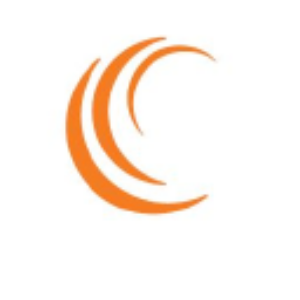Soligenix Highlights Dr. Ellen Kim’s Recent Q&A and the Promise of HyBryte™ in Ongoing Clinical Trials
Rhea-AI Summary
Positive
- HyBryte™ shows promising clinical results with no dropouts due to serious adverse events
- The therapy has unique advantages: non-mutagenic, no DNA damage, and no systemic absorption
- Addresses an unmet medical need with no new FDA-approved skin-directed therapy in over 10 years
Negative
- None.
News Market Reaction – SNGX
On the day this news was published, SNGX gained 4.89%, reflecting a moderate positive market reaction.
Data tracked by StockTitan Argus on the day of publication.
PRINCETON, N.J., June 06, 2025 (GLOBE NEWSWIRE) -- via IBN – Soligenix, Inc. (Nasdaq: SNGX) (Soligenix or the Company), a late-stage biopharmaceutical company focused on developing and commercializing products to treat rare diseases where there is an unmet medical need, today spotlights the efforts of Ellen Kim, M.D., Lead Principal Investigator for the Company’s Phase 3 FLASH (1 and 2) studies in early stage cutaneous T-cell lymphoma (CTCL), in advancing HyBryte™ (synthetic hypericin) as a potential new therapy for patients living with mycosis fungoides (MF), the most common form of CTCL.
In a recent Q&A hosted by Susan Thornton, CEO of the Cutaneous Lymphoma Foundation, a patient advocacy group, Dr. Kim shared her gratitude to clinical trial participants and emphasized the urgent need for safer, more effective therapies for CTCL. The conversation underscored the progress being made with HyBryte™, Soligenix’s novel, non-mutagenic photodynamic therapy.
“We need new therapies and access to therapies [for patients],” said Dr. Kim, noting that CTCL is a chronic disease which means that therapies with possible side effects, such as the development of contact dermatitis, sun damage or skin cancer from phototherapy, can become a real issue for patients over time. “There hasn’t been an FDA-approved, new skin-directed therapy for over 10 years, so we really need new ones that are safe and hopefully safer [than the ones currently in use].”
Clinical results from ongoing studies have been promising, with Dr. Kim noting that participants have experienced positive outcomes and that the therapy has been well tolerated, with no dropouts due to serious adverse events.
"HyBryte™ has a unique mechanism of action, so it doesn’t damage DNA, unlike phototherapy, so theoretically it’s less mutagenic and there’s less risk of skin cancer. It’s not systemically absorbed, based on prior studies, and seems to be quite well tolerated in terms of its effects on the local skin area,” added Dr. Kim.
As a professor of dermatology at the Hospital of the University of Pennsylvania and Director of the Penn Cutaneous Lymphoma Program, Dr. Kim is keen to continue her research into CTCL with colleagues and patients alike.
“There aren’t that many clinical trials going on for early-stage disease,” Dr. Kim stated, adding she is very excited for what lies ahead now that open enrollment in HyBryte™ clinical trials is available. “Hopefully we can get this over the finish line. We can’t thank patients enough; it’s so critical for getting new therapies approved.”
To watch Dr. Kim’s interview and learn more about the real-world clinical study of the treatment of Mycosis Fungoides with Synthetic Hypericin and Visible Light, please visit: https://ibn.fm/sCfYo
About Soligenix, Inc.
Soligenix is a late-stage biopharmaceutical company focused on developing and commercializing products to treat rare diseases where there is an unmet medical need. Our Specialized BioTherapeutics business segment is developing and moving toward potential commercialization of HyBryte™ (SGX301 or synthetic hypericin) as a novel photodynamic therapy utilizing safe visible light for the treatment of cutaneous T-cell lymphoma (CTCL). With successful completion of the second Phase 3 study, regulatory approvals will be sought to support potential commercialization worldwide. Development programs in this business segment also include expansion of synthetic hypericin (SGX302) into psoriasis, our first-in-class innate defense regulator (IDR) technology, dusquetide for the treatment of inflammatory diseases, including oral mucositis in head and neck cancer (SGX942), and in Behçet's Disease (SGX945).
Our Public Health Solutions business segment includes development programs for RiVax®, our ricin toxin vaccine candidate, as well as our vaccine programs targeting filoviruses (such as Marburg and Ebola) and CiVax™, our vaccine candidate for the prevention of COVID19 (caused by SARS-CoV-2). The development of our vaccine programs incorporates the use of our proprietary heat stabilization platform technology, known as ThermoVax®. To date, this business segment has been supported with government grant and contract funding from the National Institute of Allergy and Infectious Diseases (NIAID), the Defense Threat Reduction Agency (DTRA) and the Biomedical Advanced Research and Development Authority (BARDA).
For further information regarding Soligenix, Inc., please visit the Company's website at https://www.soligenix.com and follow us on LinkedIn and Twitter at @Soligenix_Inc.
This press release may contain forward-looking statements that reflect Soligenix's current expectations about its future results, performance, prospects and opportunities, including but not limited to, potential market sizes, patient populations, clinical trial enrollment. Statements that are not historical facts, such as "anticipates," "estimates," "believes," "hopes," "intends," "plans," "expects," "goal," "may," "suggest," "will," "potential," or similar expressions, are forward-looking statements. These statements are subject to a number of risks, uncertainties and other factors that could cause actual events or results in future periods to differ materially from what is expressed in, or implied by, these statements. Soligenix cannot assure you that it will be able to successfully develop, achieve regulatory approval for or commercialize products based on its technologies, particularly in light of the significant uncertainty inherent in developing therapeutics and vaccines against bioterror threats, conducting preclinical and clinical trials of therapeutics and vaccines, obtaining regulatory approvals and manufacturing therapeutics and vaccines, that product development and commercialization efforts will not be reduced or discontinued due to difficulties or delays in clinical trials or due to lack of progress or positive results from research and development efforts, that it will be able to successfully obtain any further funding to support product development and commercialization efforts, including grants and awards, maintain its existing grants which are subject to performance requirements, enter into any biodefense procurement contracts with the U.S. Government or other countries, that it will be able to compete with larger and better financed competitors in the biotechnology industry, that changes in health care practice, third party reimbursement limitations and Federal and/or state health care reform initiatives will not negatively affect its business, or that the U.S. Congress may not pass any legislation that would provide additional funding for the Project BioShield program. In addition, there can be no assurance as to the timing or success of any of its clinical/preclinical trials. Despite the statistically significant result achieved in the first HyBryte™ (SGX301) Phase 3 clinical trial for the treatment of cutaneous T-cell lymphoma or any other studies (including the open-label, investigator-initiated study), there can be no assurance that the second HyBryte™ (SGX301) Phase 3 clinical trial will be successful or that a marketing authorization from the FDA or EMA will be granted. Additionally, although the EMA has agreed to the key design components of the second HyBryte™ (SGX301) Phase 3 clinical trial, no assurance can be given that the Company will be able to modify the development path to adequately address the FDA's concerns or that the FDA will not require a longer duration comparative study. Notwithstanding the result in the first HyBryte™ (SGX301) Phase 3 clinical trial for the treatment of cutaneous T-cell lymphoma and the Phase 2a clinical trial of SGX302 for the treatment of psoriasis, there can be no assurance as to the timing or success of the clinical trials of SGX302 for the treatment of psoriasis. Additionally, despite the biologic activity observed in aphthous ulcers induced by chemotherapy and radiation, there can be no assurance as to the timing or success of the clinical trials of SGX945 for the treatment of Behçet's Disease. Further, there can be no assurance that RiVax® will qualify for a biodefense Priority Review Voucher (PRV) or that the prior sales of PRVs will be indicative of any potential sales price for a PRV for RiVax®. Also, no assurance can be provided that the Company will receive or continue to receive non-dilutive government funding from grants and contracts that have been or may be awarded or for which the Company will apply in the future. These and other risk factors are described from time to time in filings with the Securities and Exchange Commission (the "SEC"), including, but not limited to, Soligenix's reports on Forms 10-Q and 10-K. Unless required by law, Soligenix assumes no obligation to update or revise any forward-looking statements as a result of new information or future events.
Corporate Communications
IBN
Austin, Texas
www.InvestorBrandNetwork.com
512.354.7000 Office
Editor@InvestorBrandNetwork.com







